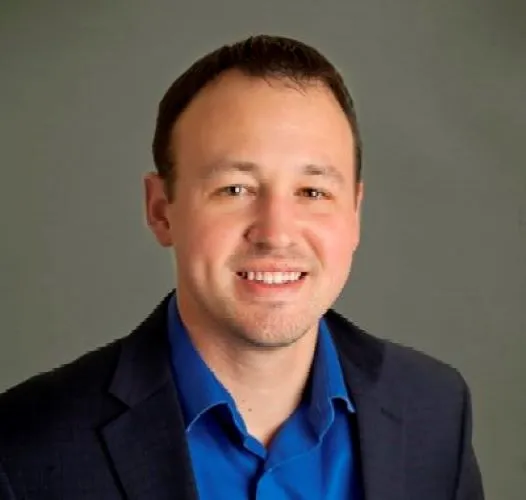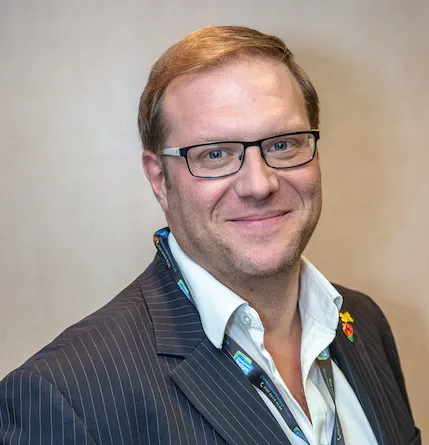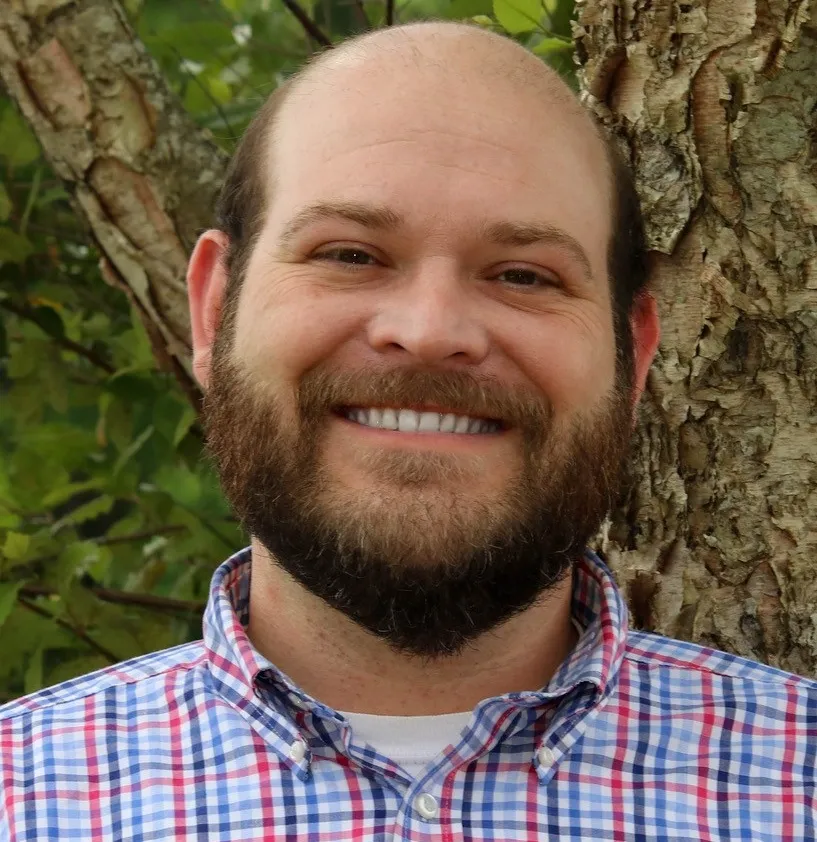All in-person attendees at the Global Exchange Conference (GXC) are eligible for Continuing Education (CE) credits. By attending GXC, you can earn over 45 CE credits through our extensive lineup of 75+ live and on-demand presentations. Access to all CE credits is powered by TPN.health, a leading digital platform for behavioral health professionals.
Upon registering for the conference, you will be contacted directly by TPN.health to complete your onboarding process. If you haven’t created a profile yet, you can register independently here.
GXC is a not-for-profit organization dedicated to providing inclusive, multi-continuum care to healthcare professionals.
Join us in person to gain valuable CE credits and enhance your professional growth. Don’t miss this opportunity to connect, learn, and advance your career with trusted providers in the industry.

How we speak about individuals is how we treat them. The use of language is vital when it comes to prevention, education, treatment, and recovery from those experiencing problems with substance use, mental health, gambling and other areas of need. The use of some language continues to be outdated, not based on clinical application, and can be stigmatizing and even harmful. Using these types of words can impact someone not seeking help, disengaging in services, discouraging progress, and feelings of humiliation and shame. There is a need to incorporate ways to undo stigmatizing words and utilize new language to foster safe environments.

Brain health is a foundational component of human health and wellness. Just like breathing, we constantly feel and experience emotions and our experiences directly affect our work, clients, families, health, and communities. However, we are not biologically built to navigate these experiences alone. The U.S. Surgeon General, Dr. Vivek Murthy, outlines that the quality of our relationships with others impacts our physical, mental and behavioral well-being in his loneliness advisory (Our Epidemic of Loneliness and Isolation, 2023). In a nation where trends are showing social connection is decreasing and social isolation is increasing, it is vital that we intentionally build quality connections with our families, friends, communities, our purpose, and with ourselves. When we intentionally improve these connections, we can reduce feelings of loneliness and isolation while increasing our resilience. Our connections make us stronger, and together, we can face all that life brings our way.
Be Well Initiatives at Burrell Behavioral Health is a brain health and wellness program caring for employees and our community through consistent practice and resiliency building. In this session, the Be Well Initiatives team will walk participants through the science behind quality connection, invite participants to engage in evidence-based strategies and provide tangible, experiential and practical tools to begin increasing quality connections together, in community. Since 2020, Be Well Initiatives has been engineering and providing a model of brain healthcare that encompasses inclusivity, trauma-informed care and strategies for navigating the on-going impacts of the pandemic on our lives. Society needs and deserves brain health care and belonging in new and different ways. Let’s Be Well together!

Brett Talbot, PhD, Co-Founder and Chief Clinical Officer of Videra Health, will discuss ways video-based AI technology can help community behavioral health centers and SUD treatment providers navigate the rising demand for care and amplify existing programs. Discover how proactive, data-driven AI solutions can enable clinicians to scale their efforts and implement clinically robust measurement-based care. AI helps us go beyond assessments, fundamentally changing data collection. By leveraging these advancements, community and SUD providers can gain actionable data and profound insights into the patient experience, leading to more informed and personalized treatment approaches. Dr. Talbot will anchor his discussion with compelling real-world results, case studies, and poignant patient narratives, illustrating the revolutionary impact of AI-driven solutions in the behavioral health landscape.
By attending this session, attendees will gain a deep understanding of how AI technology can scale and revolutionize mental health care in their communities. They will leave with actionable insights on implementing AI-enhanced approaches, improving patient outcomes, and making data-driven decisions. Attendees will be inspired, learn, and leave with the knowledge and motivation to drive positive change in their individual settings.

Release past hurts and pains of childhood trauma so you can fully thrive in life through inner child healing. Through this therapeutic process of learning to safely navigate and heal wounds from your past, your present self begins to thrive in areas of self-love, forgiveness, and compassion.

Led by an experienced clinician and behavioral health leader, this presentation delves into the essential ingredients of high-quality client-centric clinical excellence within the behavioral health services sector. Dr. Baker will share insights, case studies, and evidence-based treatment pathways focused on Trauma, Mental Health, and Substance Use Disorder (SUD) treatments. The audience will be taken through a comprehensive journey of a client’s experience from pre-admission to discharge, highlighting key aspects of individualized care and effective treatment planning. We believe that this presentation will provide valuable insights and practical strategies for healthcare professionals striving to enhance client-centric care and achieve optimal clinical outcomes within the behavioral health services domain. Participants will receive both thought-provoking and practical takeaways for client care and organizational change promoting clinical excellence.

First Responder and Law Enforcement deaths continue to be on the rise. Law Enforcement suicide rates are outpacing Line of Duty deaths. This course will examine the potential reasons why this population may choose suicide. We will discuss how we currently approach suicide prevention training for these populations and explore whether that training potentially contributes to the issues. We will discuss the obstacles to care and how providers can change how we approach First Responder Training, working to change a Culture of caring for others to one that also cares for self.

The DSM 5 added “cravings” to the criteria for substance use disorders in 2015 and the impact of trauma on the addicted brain is becoming better understood. The goals for this workshop are to explore the intersection of cravings management and how trauma could impact this process. Participants should expect to discuss cravings management techniques, review the literature on trauma’s impact on learning and elicit a discussion of multifaceted approaches that have worked for those on the front lines of SUD treatment. This dynamic presentation is both experiential and educational with the use of mixed-media and pop-culture references.

This workshop provides addiction professionals with an in-depth exploration of recovery dynamics in gambling and substance use disorders. Integrating research and clinical insights, participants will critically assess and refine conventional recovery frameworks. The session will explore parallels and differences in recovery trajectories, focusing on advanced intervention strategies and addressing challenges such as stigma, triggers, and co-occurring mental health issues. Case studies and discussions will highlight emerging trends and best practices, emphasizing holistic, inclusive approaches to treatment. Join us for a comprehensive reexamination of recovery paradigms to enhance addiction care.

Eating disorders in men are a significant concern that often goes unnoticed and lacks adequate attention in the realm of mental health. This comprehensive presentation delves deeply into this frequently overlooked area, shedding light on the unique challenges that men encounter. It also explores the societal barriers that hinder their access to the support and treatment they require. This thorough examination delves into the complex interplay between masculinity, body image perceptions, and mental well-being. By doing so, we aim to offer a more profound insight and clearer guidance in the identification and management of these disorders. Our discussion advocates for a holistic treatment approach that not only nurtures emotional and physical well-being but also stresses the importance of community engagement, fostering self-compassion, and reinforcing positive aspects of masculinity. These efforts are geared towards facilitating a more impactful and sustainable healing journey for individuals affected by eating disorders.

Breaking The Chains of Addictive Relationships is a powerful exploration into the dynamics of addictive relationships in women, led by the renowned Dr. Janie Lacy. This presentation sheds light on the often-overlooked aspects of such relationships. The discussion provides an accessible understanding of how these relationships form and evolve. It uses real-life scenarios, making the complex nature of these relationships more relatable. Through her experience, Dr. Lacy offers tangible strategies for those entangled in addictive relationships, emphasizing the importance of self-care, setting boundaries, and seeking professional help.
This presentation is not just an informative session; it’s a call to action. It inspires hope and provides a roadmap for those who wish to break free from the chains of addictive relationships.

It is estimated that nearly 6.3% of the population nationally is suffering from severe mental illness (SMI), which equates to approximately 14.8 million people in the United States (NIHM). Severe mental illness is simply defined as someone with a moderate to severe psychiatric disorder, with significantly impaired social and occupational functioning, that requires long term care. SMI is often associated with individuals suffering from a psychotic disorder such as schizophrenia, schizoaffective disorder, schizophreniform, delusional disorder, and substance induced psychotic disorder. Bipolar disorder, other mood disorders, and personality disorders can also be considered severe mental illnesses depending on the severity and the care required.
The vast majority of those suffering from SMI will never receive proper treatment due to the lack of available resources. As a result, many people living with SMI will end up incarcerated and have repeated involvement in the criminal justice system. This issue was exacerbated by the deinstitutionalization movement in the 1970’s that sought to close down “asylums” and other long term psychiatric facilities with the intention of integrating people into the community. Regrettably, this community integration plan fell significantly short of the desired outcome.
Developed in the early 1970s, assertive community treatment (ACT) was developed to be the gold standard for working in the community with individuals with severe mental illness. ACT challenges the conventional model of patients going to inpatient facilities for an acute stabilization period and then being expected to attend outpatient care on their own. Alternatively, ACT seeks to bring treatment to patients in the community. Services include wrap around case management services, counseling, and medication management with psychiatric care.

Have you ever had a group where silence was the norm, or you felt that half of the clients weren’t paying attention? Have you met clients that knew so much they could recite the curriculum talking points by heart, but were in treatment yet again?
This workshop highlights and addresses the challenges of engaging clients in the therapy process, such as patient disengagement, lack of skill-building, and the difficulty in meeting the needs of everyone in the room. Effective facilitation plays an enormous role in a client’s ability to acquire, retain, and recall information. Through incorporating the Spirit of Motivational Interviewing and deliberate practice, we can help clients feel seen, heard and to heal finding lasting recovery.

Recent data from the American Journal of Psychiatry (2021) supports the finding that Eating Disorders and Substance Use Disorders have the highest rate of mortality among psychological disorders. Yet, there are surprisingly few options when it comes to treating these co-occurring clients effectively. This workshop will educate participants on treatment considerations for clients with Substance Use and Eating Disorder symptoms. Participants will be able to bridge the gap between these two disorders by utilizing provided resources to integrate treatment to strengthen client outcomes.

Clinicians are invited to participate in this session if they have been feeling overwhelmed and burned out by the work they do. Practical tools for handling your stress levels will be provided. Attendees will be able to immediately implement skills learned to improve their clinical practice and overall well-being. This presentation will go deeper than a discussion on self-care.

Therapists can make the very best- or the very worst- leaders in complex and dynamic organizations. This presentation explores the distinct advantages and disadvantages of the psychotherapy skillset for leaders and focuses on how to leverage clinical training and talent to maximum effect in an executive role. Participants will review research on effective leadership and leadership styles, explore the rich dynamics of change management, learn about the cultivation of passion and excellence with employees, discuss the cultivation of proactive conflict, and explore the intricacies of effective trauma-informed leadership.

Many mental health clinicians have not yet embraced video gaming as a therapeutic tool, but with 3 billion worldwide gamers, it can be a highly engaging and effective strategy. From classic console games like The Legend of Zelda and Mario Kart to online multiplayer worlds like Fortnite and Minecraft, video games have both power and potential. Join us for a dynamic 1-hour session where we will explore how to use gaming and technology to enhance therapeutic rapport, increase client engagement, and bolster client resilience. Attendees will learn creative techniques, understand ethical considerations, and gain insight into how clinicians can navigate the video gaming landscape. Regardless of your clinical background, this training will provide a unique opportunity to explore real-world techniques that bridge the worlds of play, video games, and traditional “talk therapy.” Come level up your knowledge and skills, and let’s harness the power of play for both young minds and the young at heart!

By revising the original 12 steps, recovering people may extend their recovery to maximize personal growth and happiness. The original steps set the stage and enable us to define who we are as sober individuals. The Sequel provides a recipe for learning who we may become and striving to meet personal goals.
The GXC Conference is an international non-profit organization dedicated to curating conference experiences for professionals who want to elevate their knowledge regarding therapeutic practices, treatment models, and the latest mental health, addiction, and wellness innovations.